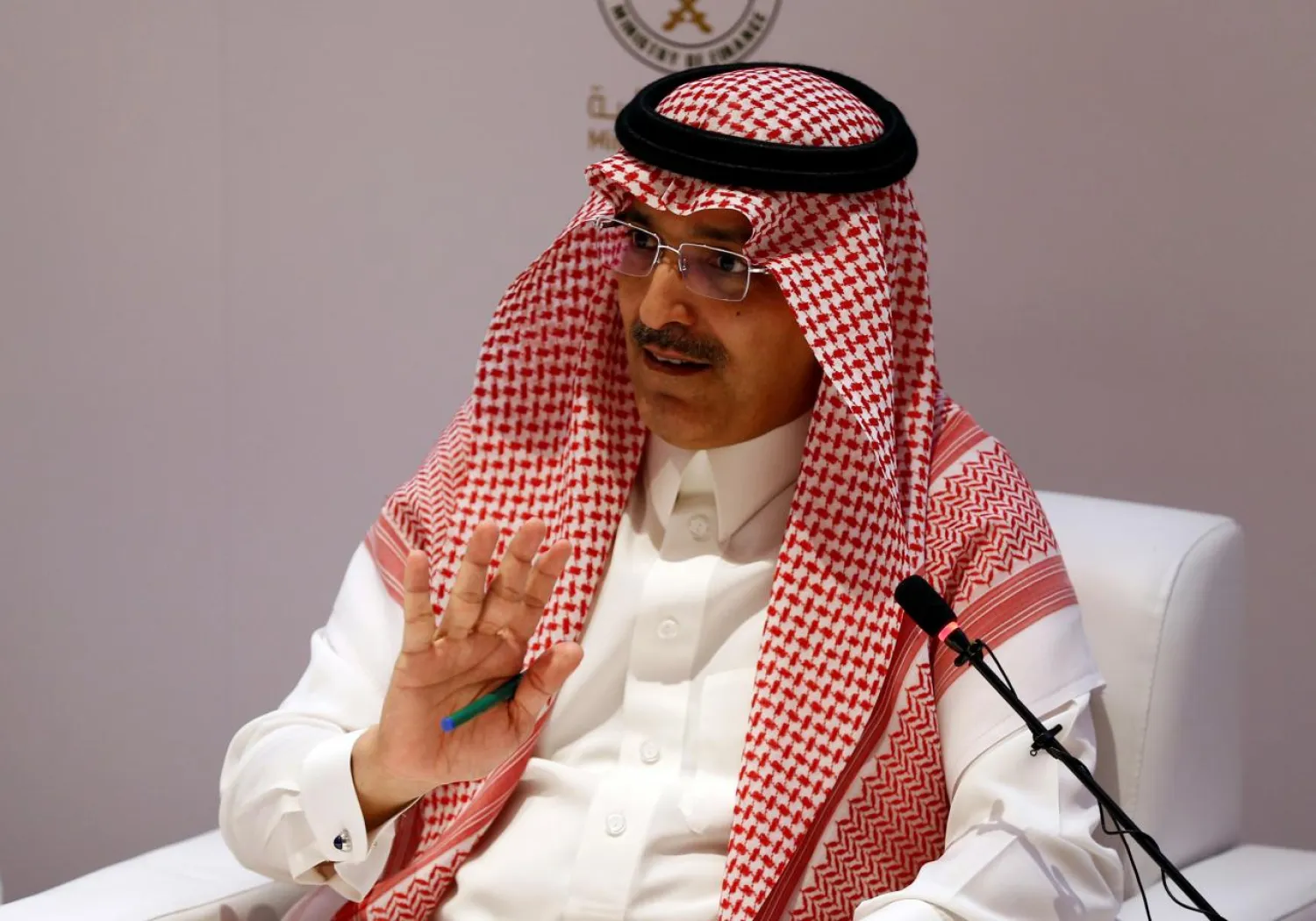At the World Economic Forum in Davos, Saudi Arabia underlined its commitment to its reform program, in the different social, economic and financial fields.
Saudi Minister of Finance Mohammed Al-Jadaan told Asharq Al-Awsat that over the past two years, the Kingdom has presented in Davos a reform program and pledges that were translated into clear achievements and concrete projects through large private sector investments.
Saudi Arabia’s Vision 2030 extends over 15 years, and consists of three stages, Al-Jadaan said. “We have come a long way in planning, and we have begun to implement the projects by focusing too much on private sector development, creating more jobs and restructuring the systems.”
He noted that 18 systems were restructured in 2018 - a major endeavor that used to take many years to accomplish in the past.
On the financial side, Al-Jadaan pointed to “great achievements, mainly curbing the deficit significantly from 12 percent in 2016 to 9 percent in 2017, and to 4.6 percent in 2018.” He added that he hoped the deficit would not exceed 5 percent in the current year.
The minister said that the coming week would witness the announcement of very large initiatives for the private sector within the framework of the National Industries and Logistics Program.
In remarks to Asharq Al-Awsat, Saudi Ministry of Economy and Planning Mohammed Al-Tuwaijiri said that the reforms led by Saudi Arabia were as big as the country’s ambitions.
“The year 2018 has witnessed great momentum, which will continue to grow in 2019 and 2020,” he revealed.
Regarding the confidence of local and foreign investors, Al-Tuwaijiri emphasized the significance of promoting institutional work and sustainability.
“The most important thing we have heard in Davos this year and in recent years is the importance of institutional work,” he stated.
In this regard, the minister stressed that investors became “aware that work in Saudi Arabia is sustainable, institutional, and built on clear foundations that enable rapid implementation and continuous communication with the private sector.”
He added that one of the objectives of Vision 2030 was to transform the Kingdom into a logistics hub connecting continents, through advanced infrastructure, digitization and multi-polar services and cooperation.
Al-Jadaan, for his part, highlighted the strong communication between the government and local investors.
“Our first concern is the local investor. There is continuous communication between the government and the Saudi investors,” he affirmed. “We hear their views to determine the list of obstacles they face, and we work with the private sector to solve them.”
As for the confidence of foreign investors, Al-Jadaan noted that Saudi issuances two weeks ago have demonstrated “a very big trust of foreign investors” in the Kingdom’s financial system.
“Two weeks ago, we issued bonds worth $7 billion, and a range of projects have been launched over the past four months; most of them by foreign investors… in the sectors of health, electricity, water and sanitation,” he said, adding that other projects would be announced later this year.
Saudi Arabia participated in this year’s meetings of the World Economic Forum in Davos, Switzerland, with a high-level delegation headed by Foreign Minister Ibrahim al-Assaf.
A panel session on “Next Steps for Saudi Arabia” was held on Thursday, with the participation of French Total’s chief executive Patrick Pouyanne and Morgan Stanley’s CEO James Gorman, along with the Saudi ministers of Economy and Finance and Sarah Al-Suhaimi, Chairman of the Board of Directors of Tadawul.
Speaking during the session, Al-Jadaan said the Kingdom managed to turn the shrinking economy of about 0.7 percent in 2017 to a growth rate of 2.3 percent by the end of 2018.
He added that the country announced the largest budget in its history to develop the local economy and was working on many infrastructure projects, stressing that the field of investment was currently witnessing positive results.
The minister underscored the regional role assumed by Saudi Arabia, by contributing to stability and giving hope to the youth.
Pouyanne said Total was engaging in a US5 billion refining and petrochemical investment in Saudi Arabia and would also soon announce a new venture for petrol stations. He stressed that the reform program reinforced his confidence in the need to invest in the Kingdom.









